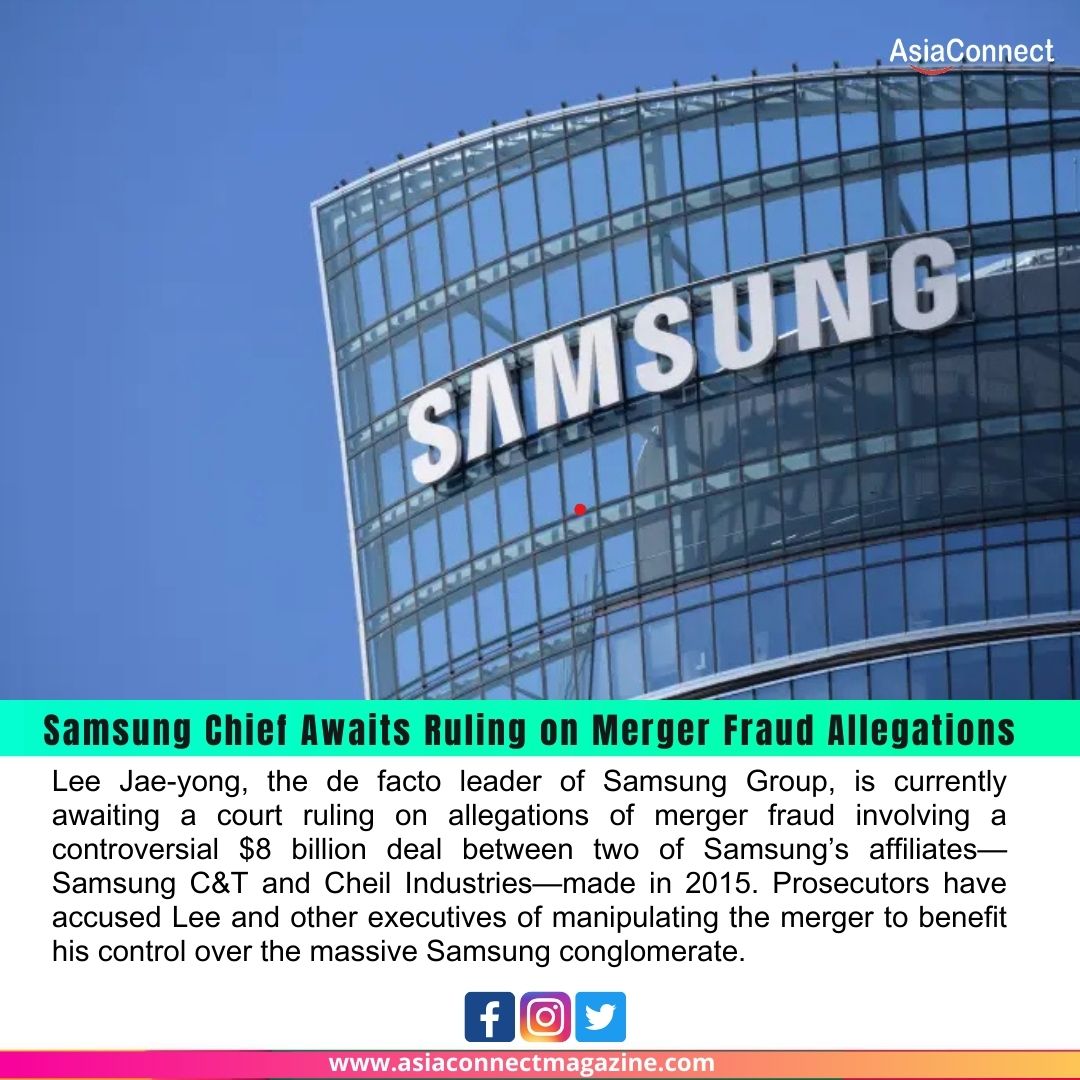Overview of the Allegations
Lee Jae-yong, the de facto leader of Samsung Group, is currently awaiting a court ruling on allegations of merger fraud involving a controversial $8 billion deal between two of Samsung’s affiliates—Samsung C&T and Cheil Industries—made in 2015. Prosecutors have accused Lee and other executives of manipulating the merger to benefit his control over the massive Samsung conglomerate. This deal, which reshaped the corporate landscape within Samsung, is now at the center of legal proceedings that could determine the future of corporate governance in South Korea.
At the heart of the case is whether the merger was conducted fairly or if it was a strategic move to entrench Lee’s control over Samsung. Critics argue that the deal was designed to artificially inflate Lee’s stock value, particularly in Samsung Electronics, the company’s flagship subsidiary and the world’s largest producer of memory chips and smartphones. The merger was seen by many as part of Lee’s succession plan, allowing him to consolidate his family’s control over Samsung and bypass the interests of minority shareholders.
The Merger’s Controversy
The merger between Samsung C&T and Cheil Industries has been heavily scrutinized due to the manipulation of share values. Critics argue that Samsung C&T’s shares were undervalued, which allowed Lee’s family to obtain a favorable stake in Samsung Electronics, strengthening their influence in the company. While the merger was framed as an effort to streamline the business and bolster competitiveness, many experts see it as a maneuver designed to secure Lee’s position as the leader of Samsung, solidifying his family’s dynastic control over the conglomerate.
Opponents of the merger have accused the company’s executives of disregarding the interests of minority shareholders. While the deal was approved by shareholders, critics argue that the process lacked transparency and fairness. The manipulations in the stock valuation for Samsung C&T led many to believe that the true motive behind the merger was to bolster Lee’s influence, not the company’s long-term success.
Legal Ramifications and South Korea’s Corporate Landscape
The ongoing legal proceedings are part of a broader crackdown on corruption and corporate governance practices within South Korea’s powerful chaebols—family-controlled conglomerates like Samsung that dominate the country’s economy. The case highlights the often opaque and controversial nature of corporate decision-making in South Korea, where family-controlled businesses wield significant influence over political and economic affairs.
If Lee is found guilty of merger fraud, the repercussions could be severe, ranging from hefty fines to possible imprisonment. Such a ruling could also lead to broader reform within South Korea’s corporate structure, especially regarding the governance practices of chaebols. Many are watching closely, as the outcome could set a precedent for future corporate governance and investor rights within South Korea.
Lee’s Defense and the Broader Implications
Lee has vehemently denied any wrongdoing, insisting that the merger was necessary to enhance Samsung’s global competitiveness and ensure long-term growth. He argues that the deal was made with the best interests of the company and its shareholders in mind. Despite his defense, skepticism remains widespread, with many believing that the merger served as a tool for consolidating Lee’s control over Samsung at the expense of minority shareholders.
The verdict in this case holds far-reaching implications, not just for Lee and Samsung, but for the entire South Korean business environment. If Lee is acquitted, it could embolden corporate executives to pursue similar mergers without fearing significant legal consequences. However, a guilty verdict could lead to increased scrutiny on corporate governance practices and provide momentum for reform within South Korea’s chaebols, which have long been criticized for their lack of transparency and accountability.
As the nation waits for a ruling, the case continues to serve as a reflection of the complex relationship between business, politics, and governance in South Korea, underscoring the ongoing struggle for corporate reform in the country.





